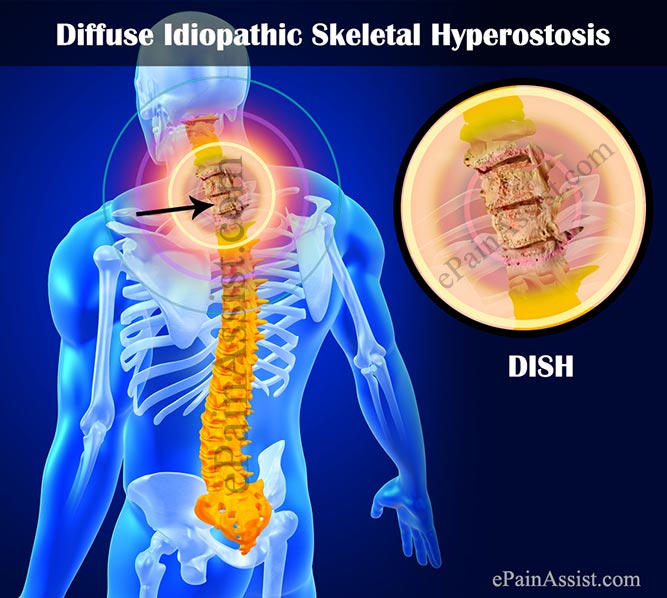Diffuse idiopathic skeletal hyperostosis (commonly referred to as DISH) is not only a mouthful to say but a significant spinal deformity that significantly affects the lives of sufferers. The condition leads to calcification or hardening of the ligaments that attach to the anterior aspect of the spine leading to lack of mobility, movement, poor posture and daily pain. Diffuse idiopathic skeletal hyperostosis is regarded as a form of degenerative arthritis. The major difference between DISH and typical arthritis is DISH’s unique flowing calcification along the spine and common presentation in other areas of the body including foot and ankle.
Signs You May Be Suffering From Diffuse Idiopathic Skeletal Hyperostosis
While many cases of DISH remain asymptomatic, typical signs and symptoms which you may experience include:
- General spinal or peripheral stiffness that is more pronounced in the morning upon waking
- Pain throughout the spine or localized to the upper back and shoulders
- Progressive worsening of your flexibility for no apparent reason
- Difficulty swallowing
What Are The Causes?
Unfortunately diffuse idiopathic skeletal hyperostosis remains poorly understood and to date we do not know the exact cause. Potential risk factors include:
- Gender. Males are more likely to suffer DISH when compared to females
- Age. Characteristically the condition presents in older individuals
- Common comorbidities include diabetes, hyperinsulinemia and obesity
- Medications such as retinoids have been identified as potentially increasing the risk of developing DISH. Retinoids are similar compounds to Vitamin-A. Vitamin-A toxicity has not been established as a potential cause
Side Effects Of DISH
- Long term disability such as lack of mobility
- Difficulty swallowing, breathing & sleeping
- Spinal fracture
Clinical Assessment
As always it is important to consult with an appropriately trained musculoskeletal professional or your family physician. X-ray referral is necessary to diagnose the presence of DISH.
Can Chiropractic Treatment Help?
Not only Chiropractic, but any treatment that promotes movement, flexibility and stretching can assist sufferers of DISH. Chiropractors can provide structures hands-on gentle management as well as prescription of home exercises and general lifestyle advice. The typical medical approach to diffuse idiopathic skeletal hyperostosis is the usage of long-term anti-inflammatory prescription. While anti-inflammatories are very effective at reducing pain and general discomfort, long-term use must be considered as they’re known to increase the risk of liver and kidney disease.


Recent Comments